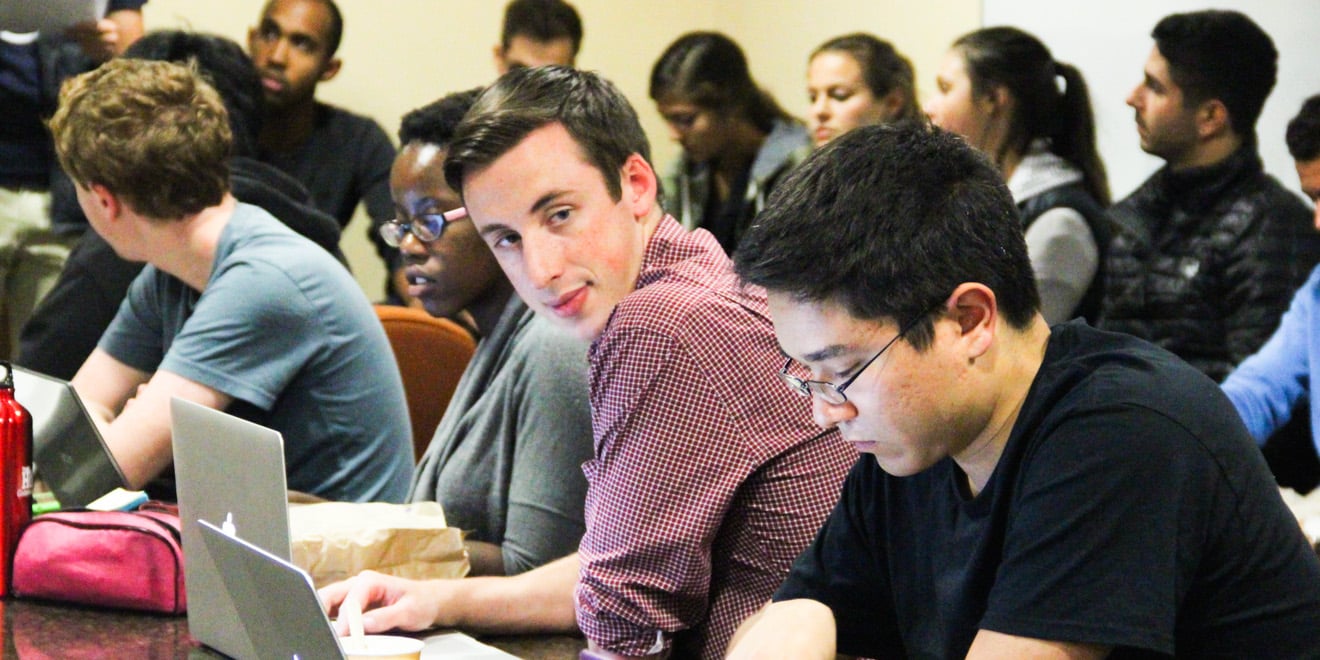The ASSU funding system is broken: Students pay an increasingly large activities fee, yet the Senate has been unable to give general fees groups the funding they desire. This has been a topic of conversation for several years now with no clear solution, and following the failure of the SAFE Reform bill last spring, this year’s Senate has shown considerable desire to solve the problem.
While we appreciate the commitment to reform and support the proposed amendment, we question the decision to set the special election for Dec. 4 and Dec. 5, because it leaves unsatisfactory time for meaningful debate about the bill. Furthermore, holding the election during Dead Week — as students are focusing on exams and finishing the quarter — may limit voter turnout and thereby threaten the bill’s chance of passing.
The Senate approved the election date on Nov. 11, just three weeks before the election, and the bill will be finalized in a Senate meeting on the Friday before Thanksgiving break. This leaves just three days during which school is in session between the announcement of the final bill and when voting opens. Given how long previous debates about funding reform have lasted, this time frame seems neither constructive nor fair.
The ASSU has said it is pushing to hold the election before the end of the quarter in order to give special fees groups enough time to properly set their budgets under whatever system is in effect. (Typically, special fees budgets are due at the beginning of February.) While this is certainly a valid consideration, we do not believe that the time needed for groups to budget should be protected at the expense of allowing the student body to properly consider the bill. Holding an election in early winter quarter will still give groups at least two weeks to budget – certainly difficult, particularly under a new system, but not impossible. It is more important to have a productive debate over what will hopefully be a long-term solution, even if it inconveniences student groups’ financial officers during the transition period.
This is likely the most significant issue this ASSU Senate will tackle during its tenure. As demonstrated by the heated debates surrounding SAFE Reform last spring, it is an issue with which the student body will sincerely engage. It is also an issue that has proven to be difficult to understand – last spring, the SAFE Reform team repeatedly took to email lists to correct misconceptions about the bill. We should be especially careful given that if it passes, this constitutional amendment will have long-lasting consequences. While it appears that the initial reaction to the proposal has been generally positive, it is critical that before a binding vote, it must receive the attention it deserves.
It is even more important that the election receives enough attention to motivate students to vote. Along with the requirement that two-thirds of the votes must be in favor, at least 15 percent of the student body – approximately 1,100 students – must vote in favor of the amendment in order for it to go into effect. In last spring’s election, 3,915 undergraduates participated, 3,006 made a decision on SAFE Reform and 1,523 (51 percent) voted in favor. While that is well over 15 percent, the spring election also includes votes on the executive slate, Senators, class presidents and special fees. Turnout is driven at least in part by students’ desire to support candidates or groups that are up for election.
If only 42 percent of students voted on a funding reform during an election that is held in the second week of spring quarter — when many of them may have personal connections to the election and it is nearly impossible to avoid the deluge of campaign emails — we worry about how many people will vote in a funding reform election held as a standalone affair during dead week of fall quarter, preceded by what is essentially just three days of discussion. If the reform doesn’t pass because of insufficient turnout, it could likely not be voted on until the spring elections, which means that it would not be able to go into effect until the 2015-16 school year.
Despite the long hours of work the ASSU Senators and their team are putting in, a much-needed reform should not be rushed to be presented to the student body at the end of fall quarter. Though we urge students to participate in this vital discussion of reform and hope that they do, given the present circumstances, we remain concerned whether they actually will. It is now on the ASSU to ensure that students are aware of the election, and incumbent on students to recognize the importance of this reform and cast their votes appropriately.
The Editorial Board can be contacted at opinions ‘at’ stanforddaily.com.
